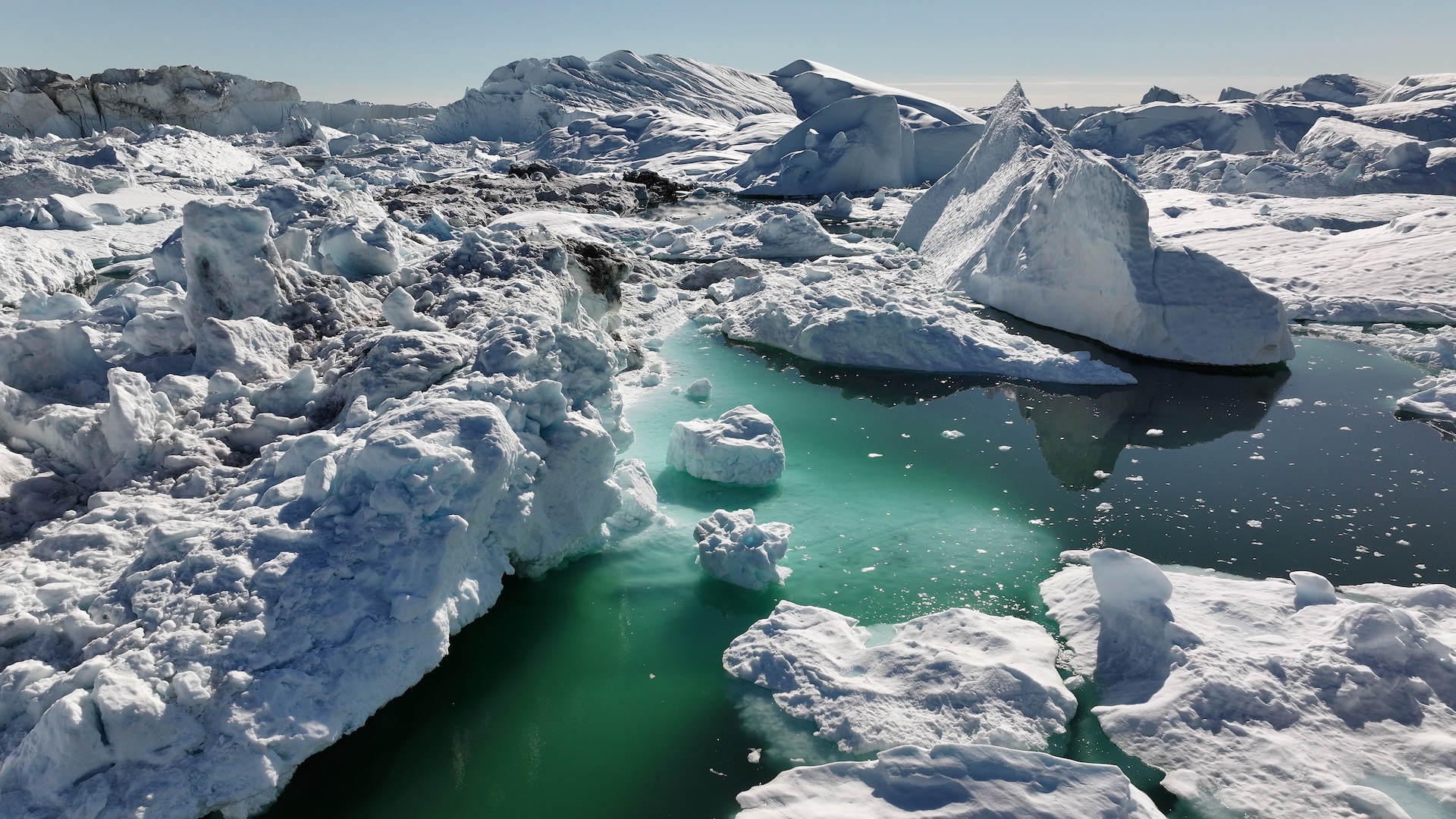
Dramatic ice melt due to climate change may move the locations of Earth’s geographic poles in the coming years, a new study finds.
As ice sheets melt and ocean mass gets redistributed around the planet, Earth’s geographic North and South poles could shift up to 89 feet (27 meters) by 2100 as the planet’s axis of rotation changes, according to the study, published March 5 in the journal Geophysical Research Letters. The shift could affect satellite and spacecraft navigation, the researchers said.
As Earth spins, changes in the distribution of the planet’s mass cause it to wobble on its axis like a top. Many of these wobbles are regular and predictable — some are due to regular changes in atmospheric pressure and ocean currents, while others result from interactions between the core and the mantle.
Recent studies have suggested that melting ice sheets and glaciers could also affect this mass distribution and shift Earth’s poles. In the new study, researchers at ETH Zurich used both the movement of the poles from 1900 to 2018 and projections of ice sheet melt to predict how far the poles might move under different human-caused climate change scenarios.
The North Pole could shift westward by more than 89 feet by 2100 under the worst-case greenhouse gas emissions scenario, the team found. Under a more optimistic emissions scenario, the pole could still shift as much as 39 feet (12 m) relative to its location in 1900. Meltwater from the Greenland and Antarctic ice sheets played the largest role in the simulations, followed by glacier melt.
“This effect is somewhat surpassing the effect of glacial isostatic adjustment, which is the effect of solid Earth rebound after the termination of the last ice age,” study co-author Mostafa Kiani Shahvandi, an Earth scientist now at the University of Vienna, told Live Science.
In other words, land at the surface of the crust sunk under the weight of ice age glaciers and rose when they melted, changing the weight distribution in Earth’s crust and shifting the poles. “This means that what humans have done has somewhat shifted the pole more than the effect of ice ages,” Kiani Shahvandi said.
Causing confusion for sat-nav
A shift in Earth’s rotational axis could disrupt satellite and spacecraft navigation, Kiandi Shahvandi said. Scientists map a spacecraft’s location in part using Earth’s rotation axis as a reference. If that axis shifts over time, it could become harder to pinpoint the spacecraft’s exact location.
Future work could involve examining paleoclimate data to determine how much the poles have shifted over millions of years during past episodes of natural climate change. According to Kiandi Shahvandi, this would help reveal the true scale of human impact on the poles’ movement.
